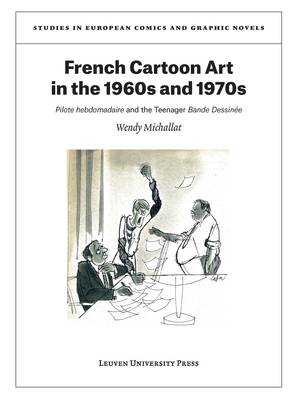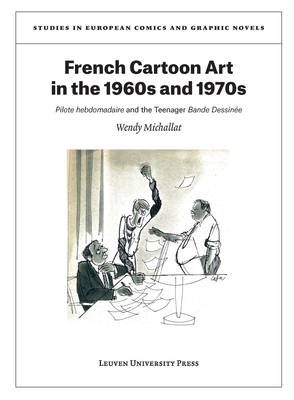
- Retrait gratuit dans votre magasin Club
- 7.000.000 titres dans notre catalogue
- Payer en toute sécurité
- Toujours un magasin près de chez vous
- Retrait gratuit dans votre magasin Club
- 7.000.0000 titres dans notre catalogue
- Payer en toute sécurité
- Toujours un magasin près de chez vous
French Cartoon Art in the 1960s and 1970s
Pilote Hebdomadaire and the Teenager Bande Dessinée
Wendy MichallatDescription
The French comic magazine Pilote hebdomadaire arrived in a weakening comics market in 1959 largely dominated by syndicated translations of American comics and comics inspired by a Catholic ethos. It tailored its content and tone to an older adolescent reader far removed from that of France's infant comic. Pilote's profile set it on a turbulent course subject to the vicissitudes and fickleness of fashion which situated it within an emerging teenager press under pressure to renew and innovate to survive. When it made cartoons its defining characteristic in 1963, Pilote articulated its uniqueness by channelling teenager discourse through them whilst also trying to encourage a zest for education in a modernising and economically buoyant France of exciting new opportunities. Pilote's cartoon art thus became a dynamic repository for the ideas and attitudes of France's educated youth which evolved into the radical discourses of the lifestyle and political revolutions of the late 1960s and early 1970s.
This book tells how Pilote hebdomadaire's unique positioning in a new and fast developing youth press market for teenagers provided the forum and catalyst for the bande dessinée's stylistic evolution over the course of the 1960s and 1970s.
Spécifications
Parties prenantes
- Auteur(s) :
- Editeur:
Contenu
- Nombre de pages :
- 256
- Langue:
- Anglais
- Collection :
- Tome:
- n° 6
Caractéristiques
- EAN:
- 9789462701229
- Date de parution :
- 15-03-18
- Format:
- Livre broché
- Format numérique:
- Trade paperback (VS)
- Dimensions :
- 175 mm x 229 mm
- Poids :
- 635 g

Les avis
Nous publions uniquement les avis qui respectent les conditions requises. Consultez nos conditions pour les avis.






